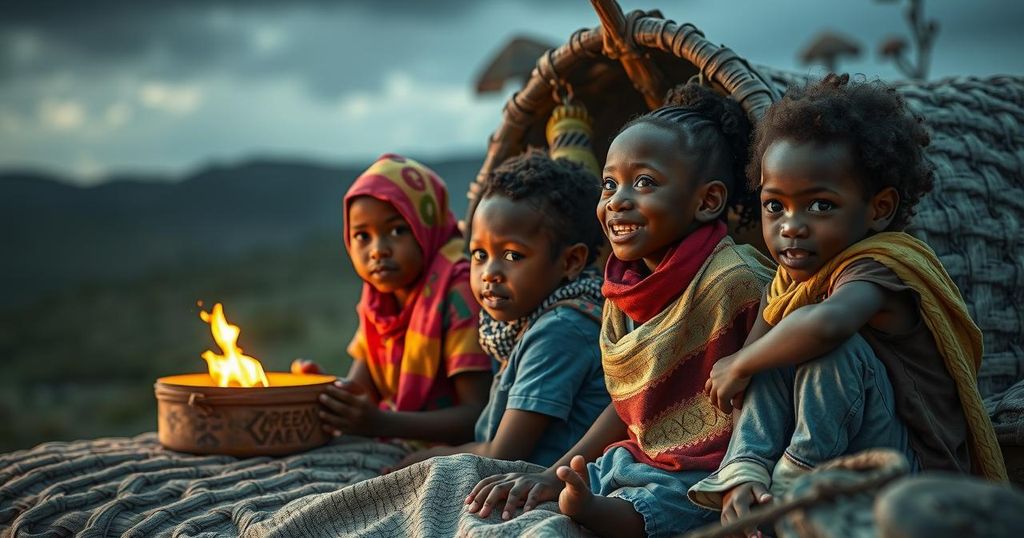Children in Northern Madagascar Prepare for Impact of Tropical Cyclone Dikeledi

Over 22,500 children in Northern Madagascar are at risk as Tropical Cyclone Dikeledi approaches. Save the Children warns of potential displacement, injury, and loss of infrastructure due to anticipated strong winds and flooding. The storm’s severity reflects the increasing frequency of natural disasters attributed to climate change, prompting calls for enhanced climate funding from wealthier nations to assist affected regions.
Over 22,500 children in Northern Madagascar are preparing for the imminent impact of Tropical Cyclone Dikeledi, a dangerous weather system that threatens to bring severe winds and torrential rain. Save the Children reports widespread evacuations as the cyclone is expected to make landfall shortly, following 24 hours of heavy rainfall that have already affected the region. The meteorological department has indicated that both strong winds and storm surges will significantly impact areas starting January 11.
In mid-December, Madagascar experienced the effects of Tropical Storm Chido, which resulted in the death of at least 39 people in nearby Mayotte. Now, the region faces its second tropical cyclone of the season, raising concerns over potential devastation and humanitarian crises. Save the Children emphasizes that storms like Dikeledi are increasingly common due to the climate crisis, necessitating urgent financial support from developed nations to assist vulnerable countries like Madagascar in addressing these challenges.
Save the Children’s representative for Madagascar, Tatiana Dasysaid, expressed profound concern about the imminent storm’s impact on children: “We are extremely concerned that more than 22,500 children living in areas expected to be hit by the cyclone are at risk of being displaced, losing their homes, school and possibly being injured or killed by falling objects or floods.”
Heavy rainfall, potentially exceeding 100 mm in some areas, is forecasted, which could trigger significant flooding in low-lying regions. Save the Children has already initiated preparations to assess the storm’s effects and support impacted families. The organization has pre-positioned supplies in the Sava region and has enhanced community preparedness, particularly within schools, as a protective measure against the approaching cyclone.
As the cyclone threatens the lives of thousands, immediate humanitarian assistance is vital. Save the Children calls upon wealthier nations to increase funding for climate resilience to support lower-income countries disproportionately affected by climate change. Active in Madagascar since 2016, the organization has been responding to humanitarian needs exacerbated by extreme weather events, providing essential support, particularly in cash-based assistance and child protection initiatives.
Tropical Storm Dikeledi is poised to make landfall in Northern Madagascar, a region that has recently been battered by heavy rainfall and is bracing for severe weather impacts. Madagascar frequently encounters tropical cyclones, with recent storms highlighting the urgency of disaster preparedness and response. Save the Children has been working in Madagascar to address the challenges posed by such natural disasters, advocating for increased support from wealthier nations to aid vulnerable communities in coping with climate-related catastrophes. The rising frequency of extreme weather events is linked to the ongoing climate crisis, underscoring the need for substantial international aid.
In conclusion, the upcoming impact of Tropical Cyclone Dikeledi poses a considerable threat to the children and families of Northern Madagascar, necessitating immediate preparedness and response measures. With many lives and homes at stake, the call for enhanced global climate funding is critical to support the region’s resilience against such disasters. Save the Children’s ongoing efforts in Madagascar underscore the importance of addressing humanitarian needs and fostering community strength in the face of climate change.
Original Source: www.africa.com







